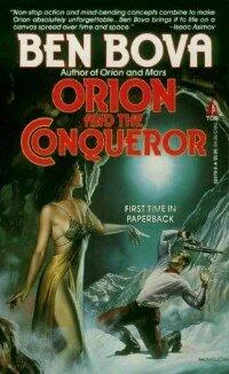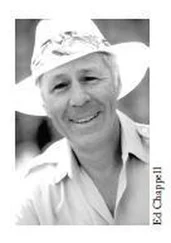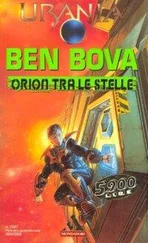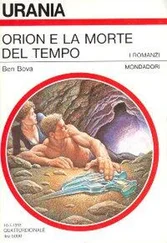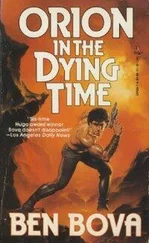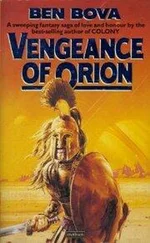“I will wait for your signal.”
“Good.” Philip laughed and reached out to tousle Alexandros’ hair. “Better get your helmet on, son. You’re going to need some protection for those pretty curls.”
Alexandros flushed as the generals laughed. As we rode back to our position in the line he complained, “He always gives with one hand and takes away with the other.”
“He’s put you in the most important position,” I said. “He’s showing great faith in you.”
“He’s put me in the spot where I’m most likely to get killed,” Alexandros grumbled.
I could not let that stand. “I thought your destiny was not to get killed until you’ve conquered the whole world.”
His grin told me that he understood the irony of the situation. “Yes, and now I know that there’s a lot more of it to conquer: Hindustan and Cathay and the gods know what else.”
That was an hour ago. Now we sat waiting for the order to charge, grooms standing beside us to help keep the horses steady, squires holding the lances we would use when we went into action. Nerves were screwed up tight, palms sweating, the very air crackling with that special electricity that comes when nearly a hundred thousand men are ready to do their utmost to slaughter one another.
The enemy stood their ground, content to wait for Philip to make the first move. They were defending their homeland; to get to Thebes and Athens we would have to get past them. If we beat them, there was nothing between us and the cities of the south. If they beat us Philip’s kingdom would collapse. This one battle would determine the outcome of the war.
The sun climbed higher. The two lines of armed men stood facing one another, sweating not entirely from the heat, waiting, waiting.
A single trumpet sounded. Like a single creature, Philip’s phalanxes on his far right began to march forward toward the Athenians. Not a charge, just a slow methodical march of some twenty thousand hoplites, shaking the ground with each step they took.
The Athenian line seemed to shudder. Then their spears came down to point at the advancing Macedonians. A battle between phalanxes often turned into a pushing match. The two lines would meet with a clashing of spears and roar of fury and each would try to push down the other. That was why Philip ordered his phalanxes sixteen men deep; the extra weight was often the difference between victory and defeat.
The Athenians were twelve men deep. They began to move forward, toward the advancing Macedonians, with an equally slow, measured tread.
From our horses we saw it all unfolding. Thunderbolt was quivering with excitement, eager to go. I stroked his neck and glanced at Alexandros. Even with his helmet on and his cheek flaps strapped on I could see that he, too, was eager to charge. But true to his promise he kept his place, even though the rest of the enemy line was now moving toward us, keeping pace with the Athenians. The Thebans were marching straight toward us, as methodical and inexorable as death itself.
From out of the Macedonian phalanxes a flurry of peltasts scampered, showering the advancing Athenians with arrows and javelins and rocks. The second and more rearward ranks raised their shields over their heads, protecting themselves and their first rank, who kept their shields before them. I saw a few men fall, but by and large the peltasts did little more than irritate the Athenians.
I was more worried about the advancing Thebans. Horses will not charge spears, no matter how you urge them. And a forest of Theban spears was approaching us, with nothing between us and them except a scattering of our own peltasts. They annoyed the Thebans but could not stop them.
Philip’s troops were advancing in oblique order, their farthest right phalanxes leading the others. It was a technique Philip had learned from the great Theban commander Epaminondas when, as a boy, he had lived in Thebes for several years, a royal hostage after Macedonia had been trounced by the Thebans.
I heard Alexandros gasp. The peltasts in front of Philip’s line turned away from the advancing Athenians and fled from the field. And the phalanxes began to retreat, as well.
“They’re running away!” Alexandros said. His voice was low, breathless.
Not running, I saw. They were retreating in good order. But retreating. Even before they had come to grips with the enemy line.
A great exultant shout went up from the Athenians and they broke into a headlong charge to close the distance with the retreating Macedonians.
“Should we send some of the cavalry to go help them?” I asked Alexandros.
“No,” he said grimly. “We stand here until he gives us the signal.”
The Thebans were moving toward us faster, now, but they were not charging wildly, as the Athenians were. The allied troops in the center of the enemy line were struggling to keep the line intact, with the Athenians rushing pell-mell on the left side of them and the Thebans advancing more slowly on the right.
Not a blow had yet been struck by the hoplites anywhere on either line, yet it looked to me as if the battle had already been lost.
And it had. But not by the wily One-Eyed Fox.
The allied hoplites could not keep up with the charging Athenians. Gaps opened up in their line. The Theban commander must have seen this, for now he began to move his phalanxes more toward the center of their formation, trying to close the gap—leaving some firm ground open between his own right flank and the marshland by the river.
Another trumpet sounded, blasting the air like the crack of doom. Alexandros grabbed the lance from the hands of his squire, raised it over his helmeted head and screamed, “Follow me!”
We charged headlong into the gap between the allies and the Thebans, thundering across the sloping ground like a torrent of death. The world around me slowed once again as my body went into overdrive. Right behind Alexandros I rode, gripping Thunderbolt with my thighs, levelling my lance as I leaned forward against the horse’s flowing mane.
We poured into the gap between the Thebans and the allied phalanxes before they could close the ground between them. Wheeling around faster than the phalanxes could turn, we hit them from the rear and sides. The allied hoplites broke and ran. The Thebans held their ground and fought back. But our light cavalry swung around their other flank, skirting the marshy ground, and completed their encirclement. In front of the Theban phalanxes our light troops harried them with arrows and javelins. They could not turn their backs on the peltasts. They could not turn their backs to our cavalry. Their commanders bellowed orders but their voices were lost in the thunder of the battle. They tried to form a circle of shields, but we cut through them and sliced their formation into smaller and smaller bits. I left my lance buried in a man’s chest and pulled out my sword, hacking and swinging madly at the milling, frightened, disorganized men all around me.
When an army loses discipline it loses the battle. The Thebans, good as they were, had lost the cohesion a phalanx needs to make it effective. They were not an army now, they had no phalanxes, only knots of shaken and confused men who were being cut to pieces by our cavalry.
On the other side of the battlefield, I learned later, the Macedonians stopped their planned retreat the instant the trumpet blast gave us the order to charge. Suddenly the Athenians were facing those sixteen-man-deep phalanxes. The two sides clashed briefly, then the Athenians broke and started to run away. Philip’s men pursued them, slaughtering them as they ran, until he saw that the Thebans were still fighting for their lives against us. He ordered an end to the pursuit of the Athenians and brought his phalanxes over to our side of the field to finish off the Thebans.
Читать дальше
